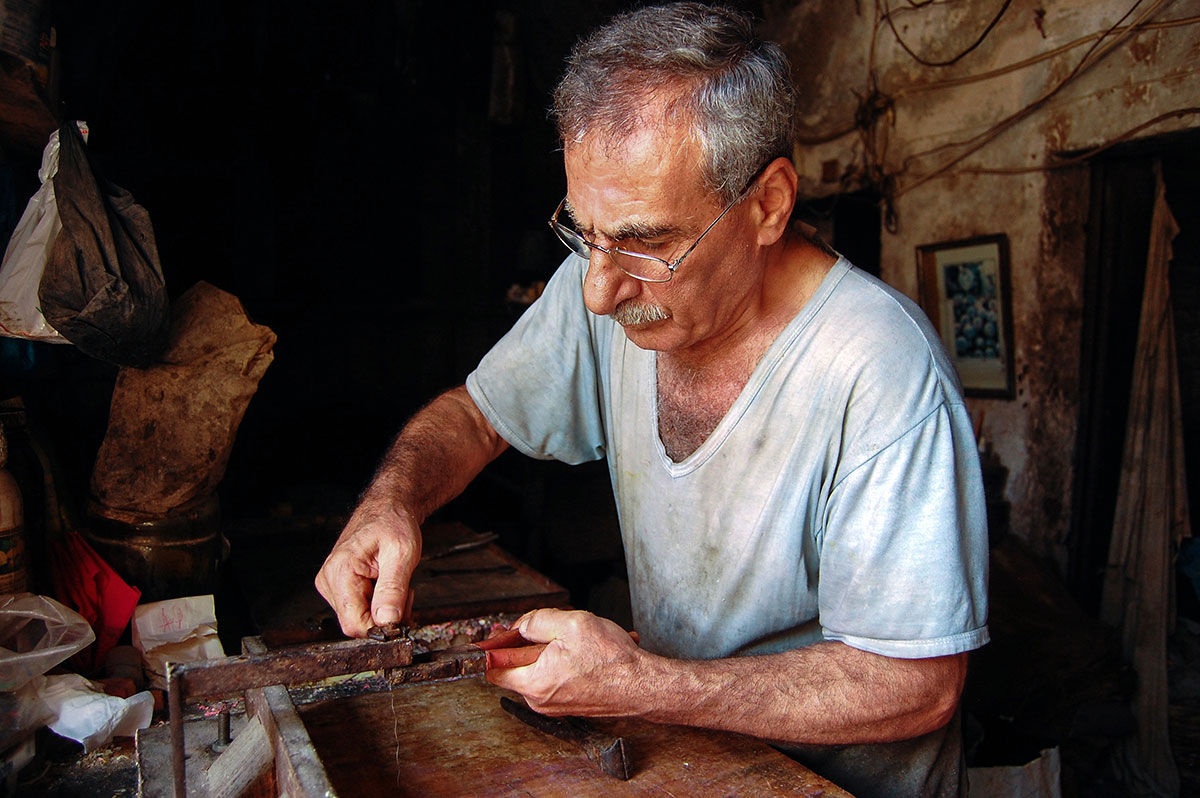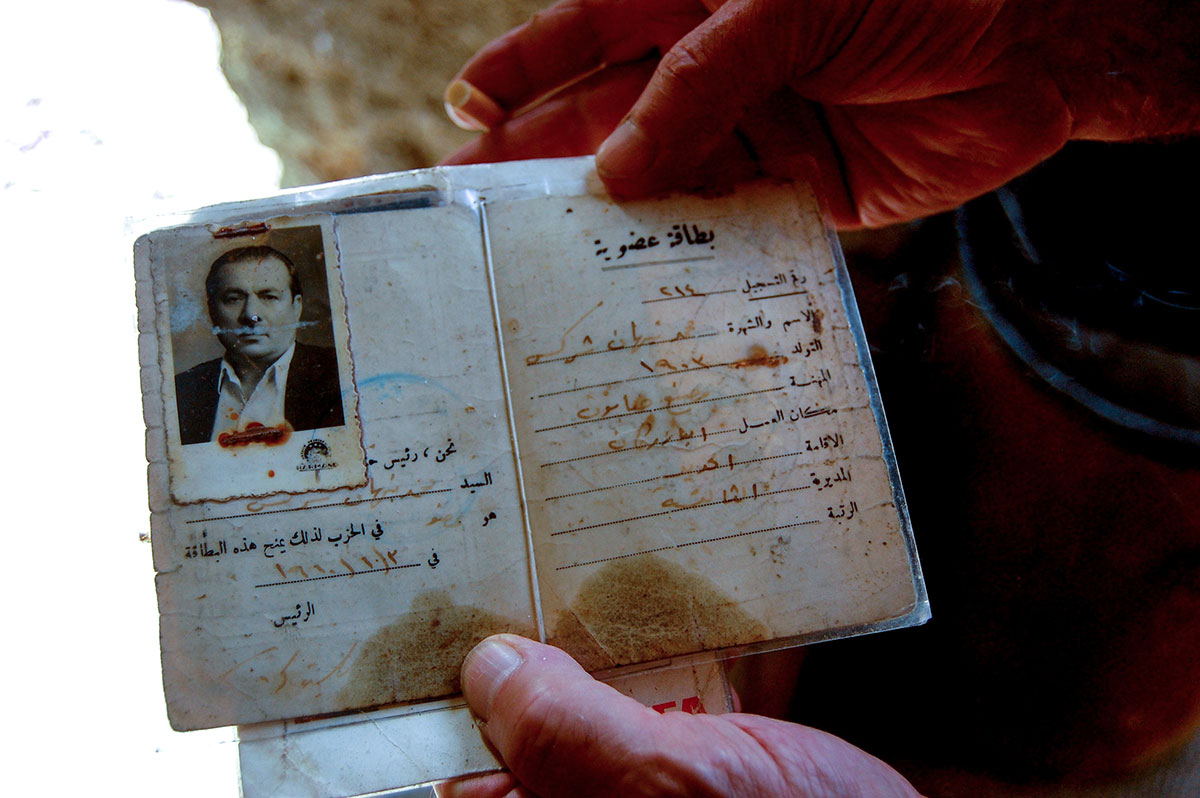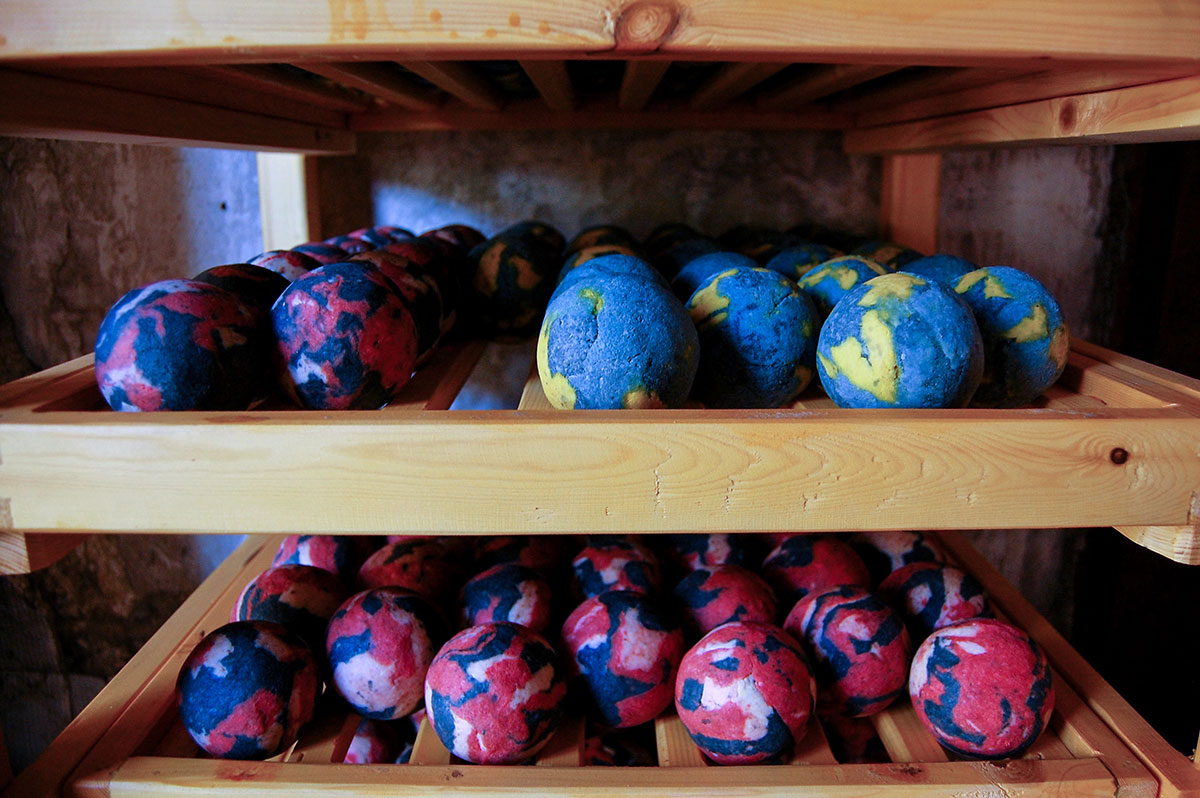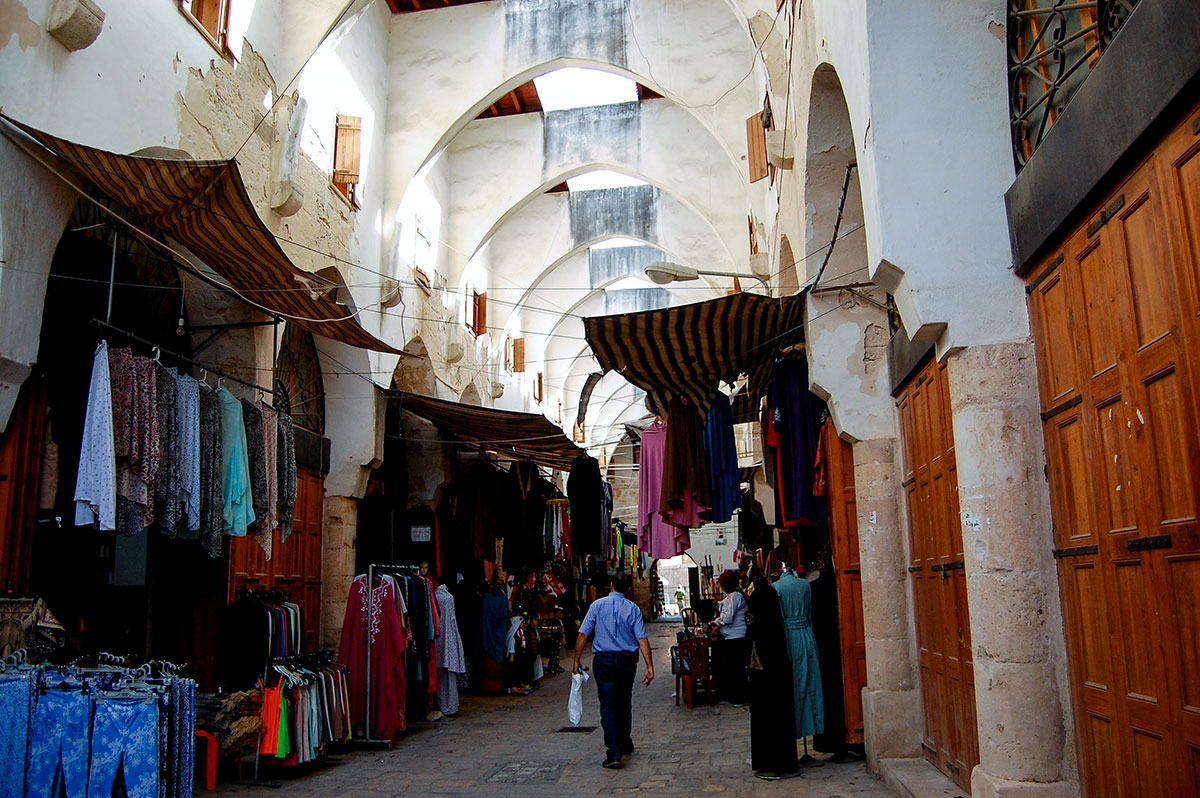Sharkass cuts and fastens a piece of wire to a nail, which will be fastened to the wooden cutting board to slice the soap into small bars. Almost everything in the factory is done by hand. [Jillian Kestler-D’Amours/Al Jazeera]
Using this system, each piece of soap comes out in one standard size. [Jillian Kestler-D’Amours/Al Jazeera]
After the bars are cut, they are placed in vertical stacks, where they stay for at least one month to allow any water that remains in the soap to evaporate. [Jillian Kestler-D’Amours/Al Jazeera]
The excess pieces of soap are moulded by hand into multicoloured spheres. [Jillian Kestler-D’Amours/Al Jazeera]
Some of the soaps are hand-carved into particular designs and objects, such as birds, lemons and roses. They are also made into smaller, grape-like batches, which can be used like traditional soap or hung in rooms or cupboards to emit a pleasant fragrance. [Jillian Kestler-D’Amours/Al Jazeera]
Soap shavings are collected into a pile. [Jillian Kestler-D’Amours/Al Jazeera]
The Sharkass Soap factory is located in the Khan al-Masriyeen, or the Egyptian Khan. Built in the mid-14th century, this area was known to house Egyptian merchants and guests visiting Tripoli. The two-storey khan has an open courtyard and a fountain on the ground floor. [Jillian Kestler-D’Amours/Al Jazeera]
The Sharkass family is originally from the Caucasus region of Central Asia, which is where they first started making soap, Mahmoud explained. This sign reads: ‘From our heritage, our ancestors’ soap.’ [Jillian Kestler-D’Amours/Al Jazeera]
Tripoli, Lebanon – Mahmoud Sharkass’ chosen profession was never much in doubt.
The 62-year-old followed in the footsteps of his father,
grandfather and great-grandfather – and the relatives that came before
them – by taking the helm of the family business. And that business is
soap.
Sharkass Soap was founded in 1803 in the Old City of
Tripoli, in northern Lebanon, where Mahmoud continues to make various
styles of fragrant soaps by hand. The craft has been passed down from
generation to generation, Mahmoud explained inside the modest factory,
as he went through the steps involved in making each bar.
Sharkass Soap is one of the most well-established soap
factories in Tripoli, a city with a long history of celebrated
soap-making. The Pasha of Tripoli, Yusuf al-Saifi, established the Khan
al-Saboun (Soap Khan) at the centre of the city in the 17th century.
Other local soap-makers, including the well-known Bader Hassoun & Sons company, still make and sell their soaps here today.















